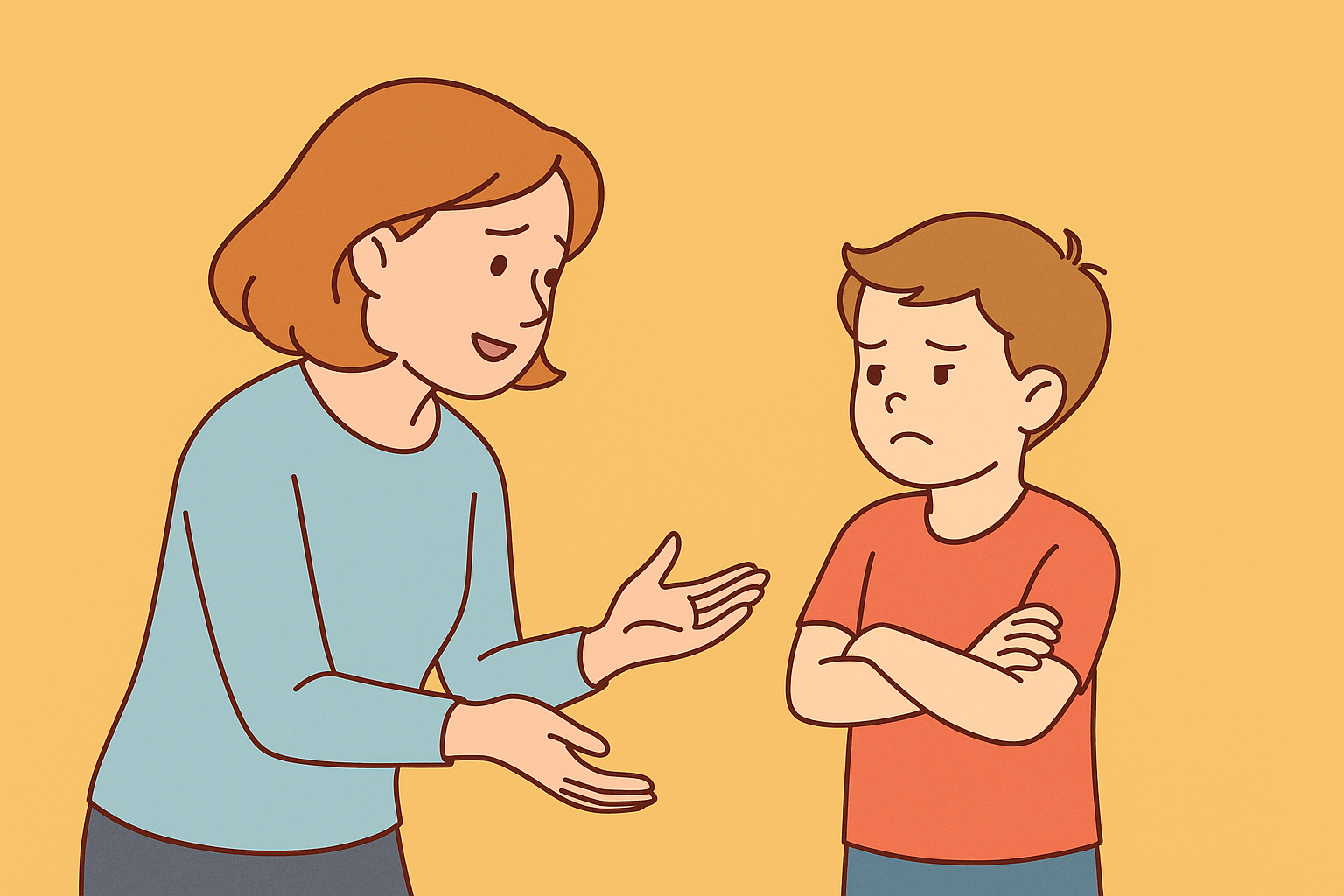Preventing Power Struggles Before They Start
Preventing Power Struggles Before They Start
If you’ve ever found yourself locked in a battle of wills with your child — over getting dressed, brushing teeth, or leaving the playground — you know how draining it can be.
Power struggles happen when both parent and child feel unheard and out of control. The good news? They’re not inevitable. With a few strategic shifts in language, structure, and connection, you can stop most conflicts before they even begin — and teach your child how to cooperate without losing their sense of independence.
Why Power Struggles Happen
At their core, power struggles aren’t about defiance — they’re about autonomy. Children crave control because it helps them feel safe and capable. When parents push too hard or remove all choice, kids instinctively push back.
✨ A child who feels heard doesn’t need to fight for power.
👉 See also: How to Set Boundaries That Actually Stick
1. Start With Connection, Not Correction
Before enforcing a rule, connect emotionally. Connection signals safety — and safety opens the door to cooperation.
Try:
“I know it’s hard to stop playing — you were having fun.”
“I can see you’re not ready yet. Let’s take a deep breath together.”
✨ Connection first; correction second.
Skill focus: empathy, co-regulation, communication
2. Offer Real Choices
When kids feel powerless, they dig in. Offering choices within boundaries gives them control without giving up structure.
Examples:
“Do you want to wear the red shirt or the blue one?”
“Do you want to hop or tiptoe to the car?”
“You can do homework before or after snack.”
✨ Choices turn orders into cooperation.
Skill focus: autonomy, decision-making, emotional regulation
👉 See also: Teaching Kids to Listen Without Yelling
3. Prepare for Transitions
Transitions are prime power-struggle territory — they challenge a child’s sense of predictability. The fix? Predictable cues and countdowns.
Try:
“Five more minutes, then it’s bath time.”
“When the timer rings, it’s cleanup time.”
“Let’s say goodbye to the playground slide together.”
✨ Warnings turn resistance into readiness.
Skill focus: structure, anticipation, cooperation
4. Keep Directions Simple and Calm
The longer your explanation, the more room for argument. Keep requests short, clear, and positive.
Instead of:
“How many times have I told you not to run in the house? You’re going to break something!”
Say:
“Walk, please. Inside feet.”
✨ Simple language lowers tension and builds consistency.
Skill focus: communication, clarity, follow-through
👉 See also: Helping Kids Follow Directions — Even When They Don’t Want To
5. Avoid Power-Triggering Phrases
Certain words automatically escalate conflict.
These include:
“Because I said so.”
“Don’t argue with me.”
“You never listen.”
Instead, use phrases that invite teamwork:
“Let’s figure this out together.”
“What’s your idea for how we can fix this?”
“I need your help to make this work.”
✨ Collaboration replaces confrontation.
Skill focus: cooperative problem-solving, emotional intelligence
6. Model Flexibility (Without Losing Authority)
Kids learn how to handle limits by watching how you handle theirs. Flexibility isn’t weakness — it’s modeling emotional maturity.
Try:
“I hear you want to stay longer. Let’s compromise — two more slides.”
“You really wanted that toy. Maybe we can add it to your wish list.”
✨ Flexibility teaches problem-solving, not rule-breaking.
Skill focus: emotional modeling, negotiation, empathy
👉 See also: Staying Calm When Your Child Won’t
7. Reinforce Cooperation, Not Compliance
Instead of focusing on obedience (“You did what I said”), emphasize teamwork (“We worked through that together”). It helps kids see cooperation as rewarding, not submissive.
Say:
“Thanks for helping us get ready on time — that made the morning smoother.”
“You handled that so calmly — I’m proud of how you worked through it.”
✨ Cooperation grows when it’s noticed.
Skill focus: intrinsic motivation, positive reinforcement, teamwork
8. Repair After a Power Struggle
Even with all the best techniques, you’ll still have rough days. When a power struggle does happen, repair and reflection keep your connection strong.
After everyone’s calm, try:
“That got tough earlier. What made it hard?”
“What can we both do differently next time?”
“I love you, even when we disagree.”
✨ Repair teaches that love and respect survive conflict.
Skill focus: reflection, empathy, communication
Key Takeaways
Power struggles are about autonomy, not defiance.
Connection and choice prevent most conflicts before they start.
Simplicity, structure, and empathy keep communication open.
Repair teaches that respect can survive disagreement.
You can’t stop every argument before it starts — but you can design your days to make them less likely. When your child feels seen, heard, and respected, power struggles lose their purpose. And what’s left is something far more meaningful: cooperation rooted in trust, not control.
This content is for educational purposes and is not a substitute for professional medical or psychological advice.
Popular Parenting Articles




